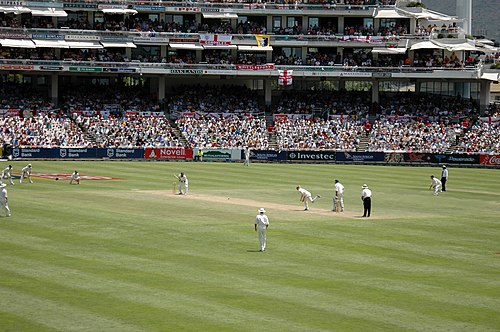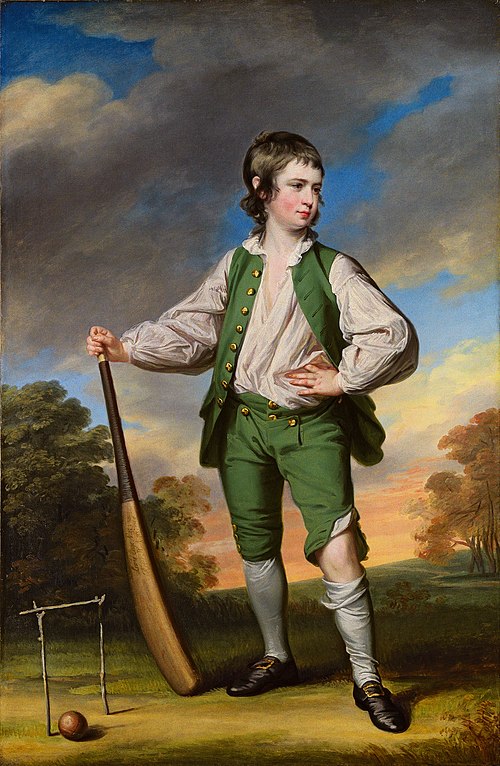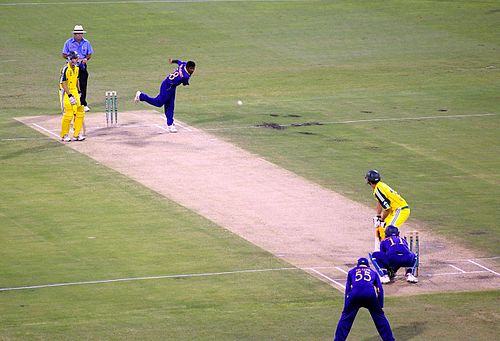Cricketnoun
An insect in the order Orthoptera, especially family Gryllidae, that makes a chirping sound by rubbing its wing casings against combs on its hind legs.
Cricketnoun
In the form crickets: absolute silence; no communication.
Cricketnoun
A wooden footstool.
Cricketnoun
A signalling device used by soldiers in hostile territory to identify themselves to a friendly in low visibility conditions.
Cricketnoun
A relatively small area of a roof constructed to divert water from a horizontal intersection of the roof with a chimney, wall, expansion joint or other projection.
Cricketnoun
(sports) A game played outdoors with bats and a ball between two teams of eleven, popular in England and many Commonwealth countries.
Cricketnoun
An act that is fair and sportsmanlike, derived from the sport.
Cricketverb
To play the game of cricket.
Cricketnoun
An orthopterous insect of the genus Gryllus, and allied genera. The males make chirping, musical notes by rubbing together the basal parts of the veins of the front wings.
Cricketnoun
A low stool.
Cricketnoun
A game much played in England, and sometimes in America, with a ball, bats, and wickets, the players being arranged in two contesting parties or sides.
Cricketnoun
A small false roof, or the raising of a portion of a roof, so as to throw off water from behind an obstacle, such as a chimney.
Cricketverb
To play at cricket.
Cricketnoun
leaping insect; male makes chirping noises by rubbing the forewings together
Cricketnoun
a game played with a ball and bat by two teams of 11 players; teams take turns trying to score runs
Cricketverb
play cricket
Cricket
Cricket is a bat-and-ball game played between two teams of eleven players on a field at the centre of which is a 22-yard (20-metre) pitch with a wicket at each end, each comprising two bails balanced on three stumps. The batting side scores runs by striking the ball bowled at the wicket with the bat (and running between the wickets), while the bowling and fielding side tries to prevent this (by preventing the ball from leaving the field, and getting the ball to either wicket) and dismiss each batter (so they are ).
Grasshoppernoun
A herbivorous insect of the order Orthoptera noted for its ability to jump long distances and for its habit of communicating by stridulation.
Grasshoppernoun
A cocktail made with crème de menthe and optionally with crème de cacao.
Grasshoppernoun
(figuratively) a young student in initial stages of training who has been chosen on account of their obvious talent
Grasshoppernoun
In ordinary square or upright pianos of London make, the escapement lever or jack, so made that it can be taken out and replaced with the key.
Grasshoppernoun
Any jumping, orthopterous insect, of the families Acrididæ and Locustidæ, having large hind legs adapted for leaping, and chewing mouth parts. The species and genera are very numerous and some are very destructive to crops. The former family includes the Western grasshopper or locust (Caloptenus spretus), noted for the great extent of its ravages in the region beyond the Mississippi. In the Eastern United States the red-legged (Caloptenus femurrubrum and C. atlanis) are closely related species, but their ravages are less important. They are closely related to the migratory locusts of the Old World. See Locust.
Grasshoppernoun
In ordinary square or upright pianos of London make, the escapement lever or jack, so made that it can be taken out and replaced with the key; - called also the hopper.
Grasshoppernoun
An antipersonnel mine that jumps from the ground to body height when activated, and explodes, hurling metal fragments over a wide area.
Grasshoppernoun
A mixed alcoholic beverage containing crème de menthe, light cream, and sometimes crème de cacao. The name comes from its light green color.
Grasshoppernoun
terrestrial plant-eating insect with hind legs adapted for leaping
Grasshoppernoun
a cocktail made of creme de menthe and cream (sometimes with creme de cacao)
Grasshopper
Grasshoppers are a group of insects belonging to the suborder Caelifera. They are among what is probably the most ancient living group of chewing herbivorous insects, dating back to the early Triassic around 250 million years ago.





















































